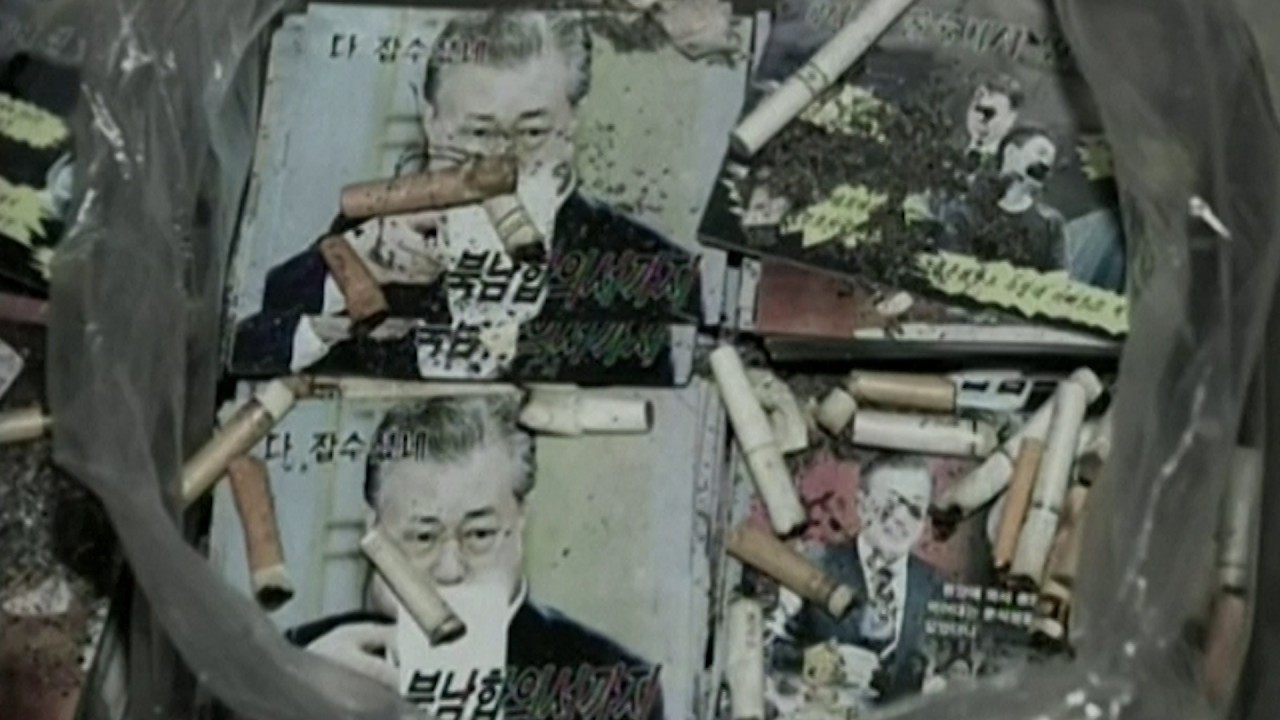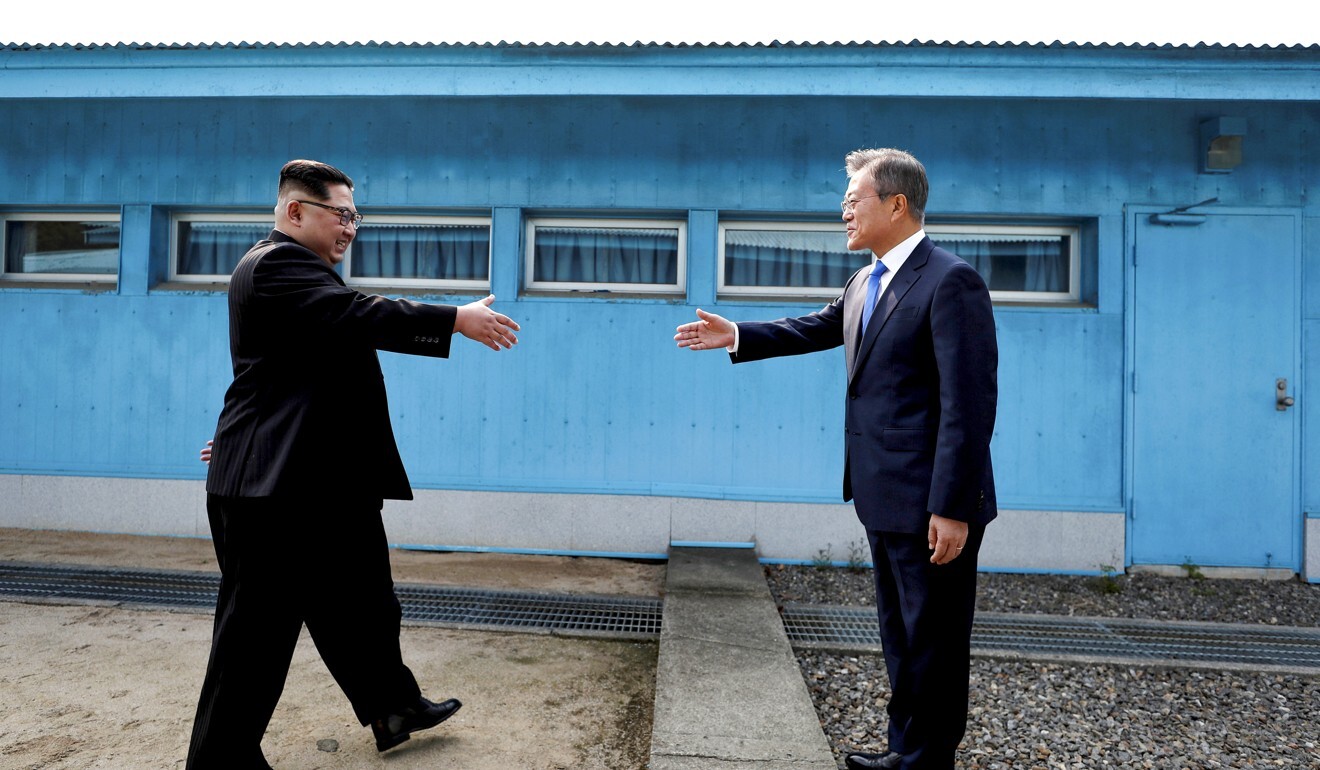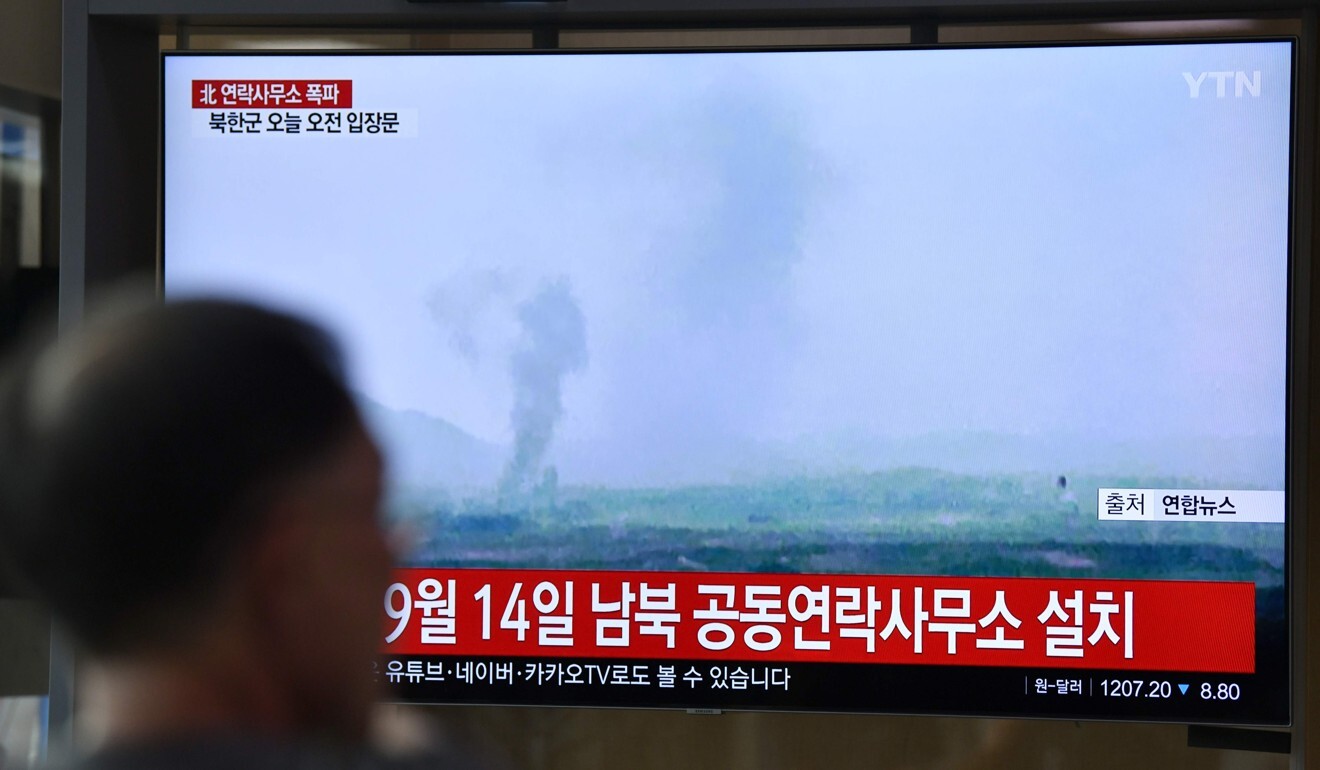
North Korea vows to send millions of anti-South leaflets across the border

North Korea human rights activists have accused the South Korean government of trying to stifle advocacy against dictator Kim Jong-un, amid plans to audit NGOs focused on abuses in the hermit state.
The South Korean Ministry of Unification has signalled plans to audit 25 non-profits working on human rights in North Korea, after last week revoking the licences of two defector-led organisations involved in the controversial practice of flying anti-Kim-regime propaganda leaflets across the heavily militarised border.
The ministry deregistered Fighters for a Free North Korea and the Kuensaem Education Centre after the groups refused to stop the leaflet campaigns, which have infuriated Pyongyang and undercut the rapprochement efforts of President Moon Jae-in. The ministry said the leaflet campaigns had “gravely hindered” efforts towards the unification of the Koreas and endangered the lives of people who lived near the border.
The leaders of the organisations, brothers Park Sang-hak and Park Jung-oh, have also been placed under police investigation on suspicion of violating the law on inter-Korean exchanges and cooperation. Provincial government authorities also separately requested police to investigate the Parks, along with several other activists, on suspicion of misusing donations.
North Korea is a divisive and emotionally fraught issue in the South, where attitudes about how to best approach its unpredictable neighbour are often split along ideological lines. In an opinion survey carried out by Realmeter last month, 50 per cent of South Koreans said they would support a ban on leaflet drops across the border, compared with 41 per cent opposed.

North Korea vows to send millions of anti-South leaflets across the border
In a July 16 open letter, more than 20 non-profit organisations accused Seoul of launching an “unjustified and politically motivated” audit with the aim of “stifling the North Korean human rights movement, freedom of speech, and freedom of association in South Korea”.
The audit could potentially result in more organisations losing their non-profit status, which would deprive them of various tax-related benefits. The ministry, which has not specified the names of the organisations being targeted, is expected to begin its investigations before the end of this month.
“The Unification Ministry is using the audit of the North Korean defector groups to get rid of organisations working on North Korean human rights – that’s the goal,” said Jung Gwang-il, who survived a prison camp in the North and now runs the non-profit organisation No Chain. “The South Korean government is more interested in protecting its vested interests than human rights.”
But Yoon Sung-suk, a political-science professor at Chonnam National University, accused many of these NGOs of “undermining” and “disrupting” Moon’s efforts to seek reconciliation with the North. “They are different from ordinary NGOs,” Yoon said. “They are bordering on ideological bigotry. They are seeking to upend efforts for peace and reconciliation with the communist North whose demise they want to see.”

The Koreas were divided in the aftermath of World War II and remain technically in conflict after the Korean War ended in an armistice, not a peace treaty. Activists have long accused President Moon, a former human rights lawyer and the son of North Korean refugees, of trying to muzzle criticism of Pyongyang for the sake of reconciliation and eventual reunification between North and South – a recurring issue under South Korea’s left-leaning administrations.
President Roh Moo-hyun, Moon’s political mentor, barred Hwang Jang-yop – the former North Korean chief propagandist who later defected to the South – from travelling overseas during the 2000s out of concern his criticism of the regime would derail Roh’s “Sunshine Policy” of engagement.
In the United States, South Korea’s security ally, conservative Republican politicians have also supported the cause of North Korean defectors in their campaign against Kim.
The North, which a 2014 UN Commission of Inquiry found responsible for human rights abuses without “parallel in the contemporary world”, does not tolerate criticism of the ruling Kim dynasty and often lashes out at critics outside the country. Its state media cited Seoul’s failure to prevent leaflet campaigns by defectors last month when it blew up an inter-Korean liaison office that had stood as a rare symbol of cooperation between the sides.
“The groups in South Korea feel under siege – they have long been raising concerns about how Moon was defunding all the North Korean human rights activity and suppressing the voice of the defectors,” said Suzanne Scholte, chair of the North Korea Freedom Foundation in Washington, which works closely with NGOs in the South. “It has been demoralising for them to see their government support the tyranny they fled.”

The Ministry of Unification did not respond to a request for comment. But a source close to the Moon administration said the government had little choice but to take action, pointing to allegations of fraud, the concerns of residents living near the border, and the existing legal regulations governing exchanges between the Koreas.
“Yes, freedom of speech is important, but community interest and the rule of law are equally important,” said the source, who requested anonymity to speak candidly. “Those citizens living along the border area have strongly protested the North Korean defectors’ sending of leaflets for fear of military escalation.”
Lee Kwang-baek – the president of Unification Media Group, which publishes news reports from inside North Korea – said most organisations would refuse to submit to any probe.
“I do believe that the plans to conduct the audit are a clear case of the Moon government trying to suppress North Korean human rights-related organisations,” said Lee, adding that he had been asked to provide documents related to his organisation’s non-profit status although he was told it was not being included in the audit.
“This is because the audit plans are focused on just North Korean human rights organisations, not all non-profits registered with the Ministry of Unification. I believe that the ministry could use the results of a detailed audit into these organisations to find issues that the South Korean government could then use to create negative public opinion against these organisations or even end their registration.”
Additional reporting by Park Chan-kyong